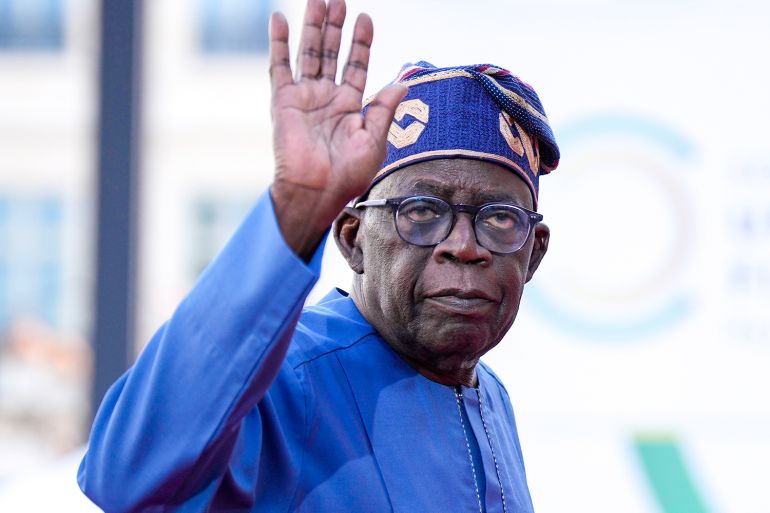Nigeria’s Bola Tinubu submits list of 28 cabinet nominees
In a shorter list than usual, Nigeria’s president unveils list of ministerial nominees two days before deadline.

Nigerian President Bola Tinubu has unveiled a list of ministerial nominees, including a former member of the main opposition party.
The names of the 28 nominees were sent to the Senate for approval on Thursday, two days before a deadline.
Keep reading
list of 4 itemsNigeria’s President Tinubu chosen as new West Africa bloc chief
Nigerians look to president-elect Tinubu for economic turnaround
Photos: Tinubu, supporters celebrate Nigeria election win
They include former governors, economists, health experts, lawyers and allies of Tinubu, who was sworn in in late May.
Among them were former Governor of Rivers State Nyesom Wike, ex-Ebonyi State Governor David Umahi and presidential spokesman Dele Alake.
A longtime member of the opposition People’s Democratic Party (PDP), Wike did not back the party’s candidate, former Vice President Atiku Abubakar, in this year’s election and instead headed a team of five breakaway PDP governors who refrained from endorsing any contenders.
Ali Pate, a physician and professor who resigned as head of the global vaccine alliance GAVI earlier this year, was also included in the list of nominees. He is expected to be confirmed health minister, a post he held under President Goodluck Jonathan’s government a decade ago.
After former President Muhammadu Buhari took more than five months to appoint his cabinet in 2015, the Senate amended the constitution to limit presidents to a period of 60 days to nominate ministerial candidates.
Tinubu’s list of 28 nominees is shorter than usual; presidents typically appoint at least 36 ministers to allow representation from all 36 states in Nigeria.
Tinubu was declared the winner of February’s presidential election with 37 percent of the vote, a result that was challenged in court by his two main rivals, the PDP’s Atiku Abubakar and Peter Obi of the Labour Party.